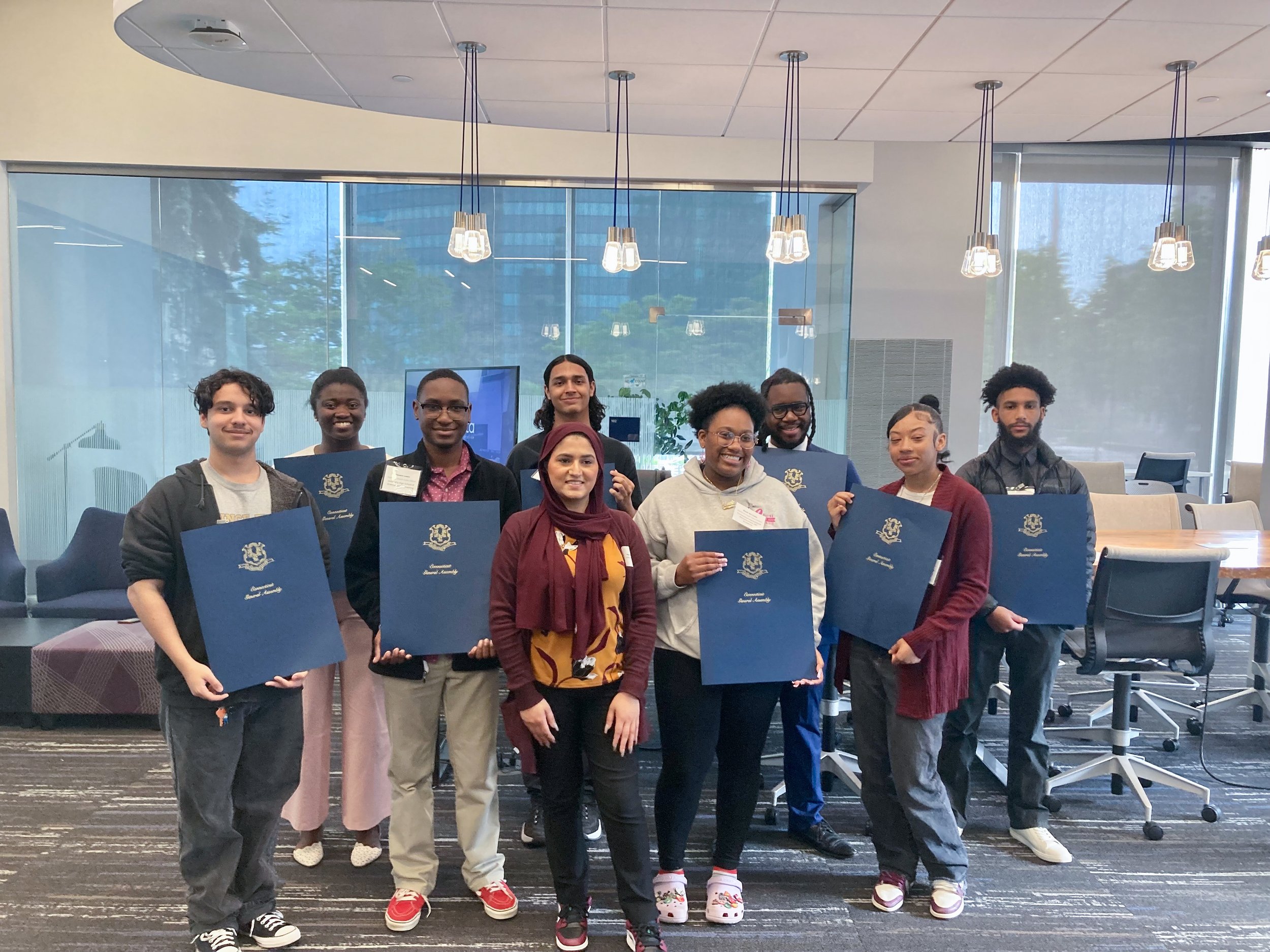HDC Resources & News
HDC News
Hartford Youth Data Fellows Introduces Teens to Real-World Data Gathering
Ten youth from Hartford - high school seniors, college students and recent graduates - have joined CTData’s Hartford Data Collaborative this year to serve as the third class of Hartford Youth Data Fellows. The students serve as co-researchers with the Hartford Data Collaborative throughout an extensive 5-month program, which launched in January and runs through early June. Read more here.
Want to know if your data are managed responsibly? Here are 15 questions to help you find out
It mentioned Hartford Data Collaborative’s min specs work. Learn more here.
”Our hope is that information related to the min specs will help organizations and data-sharing initiatives share best practices and learn from each other to improve their governance and management of data.”
Five Keys to Boosting Employment for Youth With Justice System Involvement
“The Hartford collaborative created a specific working group to analyze data generated by local government agencies and nonprofit service providers. This data sharing and integration allowed the collaborative to identify gaps in programming and suggest areas for future improvement.“.
Recidivism Analysis of the Hartford Reentry Welcome Center
The Hartford Data Collaborative (HDC) facilitated the collection and sharing of project data. Prior to CCSU’s involvement in this project, the HDC entered into data sharing agreements with Community Partners in Action, the Connecticut Department of Correction, the Connecticut Judicial Branch, and the Connecticut Coalition to End Homelessness. The HDC oversaw the collection, de-identification, and initial cleaning of these electronic data, which were then transferred to CCSU where they were matched and analyzed for this evaluation.
HDC Blog Posts
Downloadable Resources
Related CTData Projects
New: Hartford Young Children Data Story
An overview of young children in Hartford in an accessible format that is easy to navigate.
What you can learn and explore (By neighborhood):
Number of children under 6 and the numbers below poverty
Map of childcare centers and family child care
Map showing the centers and bus lines
Table with child care capacity
Overall KEI results of most recent data available
Trend in births to Hartford mothers 2010-2021
Trend in substantiated abuse/neglect reports
New: Promoting Equitable Pandemic Recovery for Hartford’s Young Children
In 2023, CTData partnered with the City of Hartford’s Division of Early Learning in the Department of Families, Children, Youth and Recreation to understand how the COVID-19 pandemic has impacted the early care and education experiences and the development of young children in Hartford, and the supports that child care providers and families need. We analyzed administrative records from Hartford’s Early Childhood Data System, conducted a survey of Hartford child care providers, and facilitated focus groups with parents of young children in Hartford.
Hartford Neighborhoods Voter Data Story
Hartford Data Platform
Hartford Neighborhood Data Explorer
Hartford UNITY Project
Health in Hartford’s Neighborhoods
Projects coming soon:
North Hartford Ascend Pipeline, neighborhood maps coming soon
Early Childcare Data Map
HDC FAQs
-
HDC wants to use data to answer big questions about how to improve the lives of Hartford area residents. Traditionally, information about residents—where they live, their enrollment in childcare centers, school, or workforce training programs, and what happens to them after they graduate or leave these programs—is collected by different agencies and stored in different data systems.
HDC seeks to securely collect, link, and share data from different agencies to create a richer view of who uses programs and allow community partners to better understand the outcomes from these programs over time. HDC sees data as a shared asset that can be used to improve service delivery, identify and remediate service gaps, improve public policy, identify cost savings, and most importantly—to improve the lives of Hartford residents.
-
Administrative data, the data agencies routinely collect about their operations, including client or participant demographics, program participation, and services provided.
-
HDC provides clear rules for the storage and use of data to protect the safety and privacy of the individuals served. HDC has a 3-tiered governance structure, a rigorous review process, and a legal framework to ensure all data sharing efforts protect individuals’ privacy and confidentiality while benefiting the Hartford Community.








